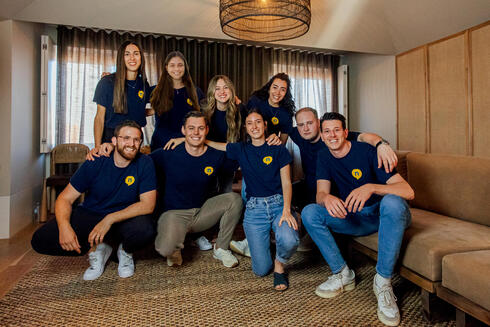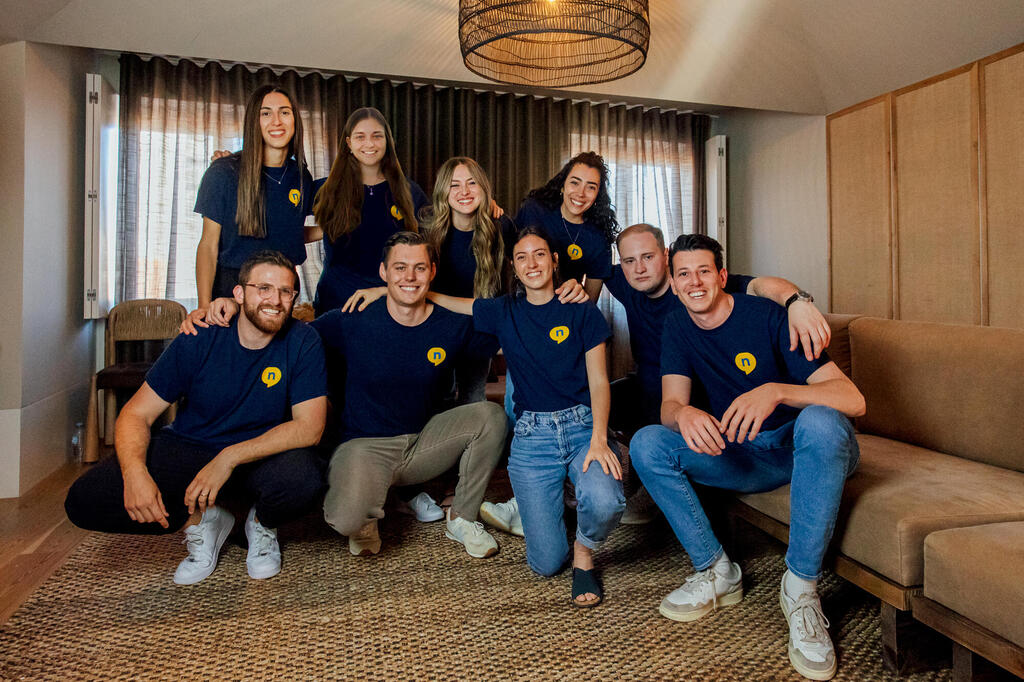
Nagish raises $11 million Series A to make communication accessible to the deaf
The Israeli startup’s solution enables real-time transcription, adjustment of the text display to the user's needs, and an intuitive interface
Israeli startup Nagish, which enables the deaf to talk on the phone using artificial intelligence, has raised $11 million in a Series A funding round. The fundraising was led by Canaan Partners, with existing investors K5 Global, Tokyo Black, Cardumen Capital, Vertex Ventures Israel, Contour Venture Partners, and Precursor Ventures also participating, along with the founders of Datadog and Looker. So far, the company has raised $16 million. The funding will allow Nagish, which means accessible in Hebrew, to continue developing its communication solutions designed to boost the communication, information sharing, and work capabilities of over a billion hard-of-hearing and deaf people worldwide.
To date, hearing and speech-impaired people who wish to talk on the phone were required to call a provider of telephone relay services, where center workers would join the conversation and assist in translating text into voice and vice versa. Nagish developed a private relay service that allows the deaf and hard of hearing to communicate by phone without the need for a human intermediary. The solution enables real-time transcription, adjustment of the text display to the user's needs, and an intuitive interface. "At Nagish, we are aware of the disruption produced by generative artificial intelligence that turns simultaneous transcription and translation into basic products available to everyone, but we are not afraid of it. Today, it may seem like that's all we do, but in practice, we are an accessibility company, and our solutions are much broader, with transcription being only a part of it," explains Tomer Aharoni, the company's CEO.
Nagish's software is already integrated into the communication solutions of American giant Comcast, and its customers include Amazon. Aharoni explains that many employees in Amazon's logistics centers are deaf and need accessibility solutions for communication with other employees. He also mentions that Nagish was recently added to the list of authorized providers by the U.S. Federal Communications Commission (FCC) to provide automatic simultaneous translation services, alongside five veteran companies that use human translators. Following this inclusion, the Israeli company will receive payment for every minute of a call made through its application. According to Aharoni, the U.S. alone represents a $2 billion market, as sign language interpreters or simultaneous translators for the deaf receive $75 an hour, and since it is an intensive job, each translator can only work a few hours. Therefore, if a company wants to recruit a deaf employee, it often has to hire two sign language interpreters at the same time, which makes employment unprofitable in most cases.
Globally, there are about a billion hearing-impaired people, including 800,000 in Israel. Not all hard-of-hearing and deaf people have hearing aids, sometimes for medical reasons and sometimes due to the high costs of the devices. Additionally, most of the deaf do not speak and therefore need accessibility services. Aharoni explains that in many other countries, including Canada, Japan, and Australia, there are government programs to encourage the integration of the deaf into the labor market, and Nagish plans to expand there as well.
The company began as a hobby for Aharoni (32) and his co-founder Alon Ezer (31), both graduates of the Faculty of Computer Science at Columbia University in the USA. Aharoni, who specialized in natural language processing (NLP), began developing an automatic translation and transcription engine for the deaf in 2019, but the project gained momentum in 2020 following the coronavirus pandemic. Many deaf people found themselves unable to communicate during the lockdown, and the Israeli company's accessibility application began to accumulate downloads at a high rate. The two received an initial funding request from Comcast to develop a solution that would allow the deaf to communicate using software such as Zoom. Today, Nagish employs 18 people, most of them in the U.S., where Aharoni and Ezer are also based, but it plans to expand in Israel and reach a total of 30 employees by the end of the third quarter.















